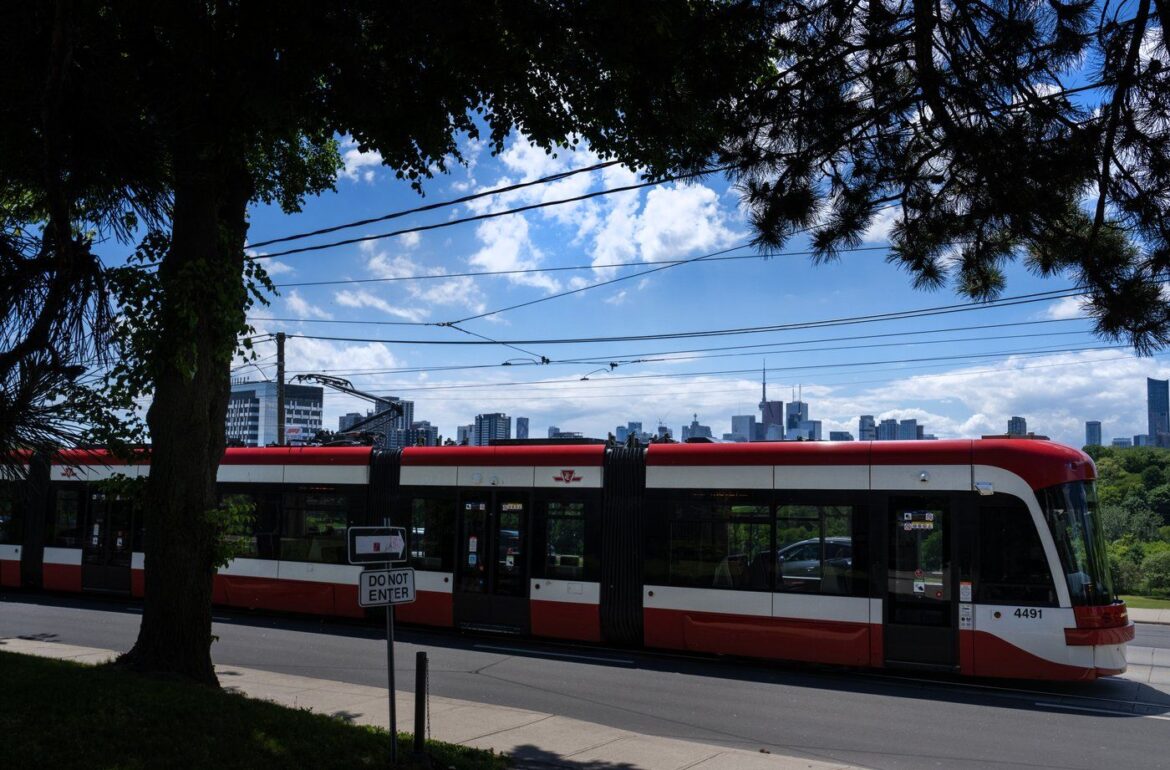Toronto transit workers’ recently restored right to strike was crucial in eleventh-hour contract negotiations with the city’s transit agency, the president of their union said Friday as he expressed confidence members would ratify a finalized tentative deal.
Contract talks between ATU Local 113 and the Toronto Transit Commission went down to the wire, with the two sides announcing a tentative deal minutes before a midnight strike deadline.
The deal was signed off on by the union’s executive early Friday and will be put before its nearly 12,000 members for ratification, said ATU Local 113 president Marvin Alfred.
“I’m absolutely confident that this will be endorsed,” he said in an interview.
A strike would have brought transit in Canada’s most populous city to a grinding halt, idling the TTC’s fleet of subways, streetcars and buses, while clogging Toronto’s already congested roadways with extra traffic.
The power of the union’s strike threat was apparent in the last hours of negotiations, Alfred said.
“At the end, it truly showed itself, that leverage,” he said.
This round of bargaining was the first since a provincial strike ban on TTC workers was lifted after a court ruled it unconstitutional, a decision upheld last month by the Court of Appeal for Ontario.
The union had blamed that provincial law, which made their members essential workers, for a deteriorating relationship with management and declining engagement from the rank and file.
TTC CEO Rick Leary said he was “extremely pleased” the two sides reached a deal, avoiding any job action and service disruptions.
“This is a fair deal that is affordable for the TTC and respectful of the important work the 11,500 members of ATU Local 113 do every day to keep our system safe and our service reliable,” he wrote in a statement.
Neither side shared any specifics of the agreement with it still to be approved by the TTC board and ratified by the union membership.
The deal also avoids a major political dilemma for Mayor Olivia Chow, whose pro-labour credentials helped her garner the transit union’s endorsement in last year’s election, said Larry Savage, a Brock University labour studies professor.
If the strike had gone ahead, Chow may have been left to decide if or when to ask for back-to-work legislation after the province signalled Thursday it would only draft such a bill on her request. The last TTC strike in 2008 ended after less than two days when the provincial government legislated employees back to work on the mayor’s request.
“Chow definitely dodges a bullet,” Savage said.
Speaking to reporters Friday, Chow said she was briefed throughout negotiations and had remained optimistic an agreement would be reached.
“I’m very, very glad that we have a deal,” she said.
Chow also suggested the 2011 strike ban may have contributed to the complexity of the negotiations. The last two rounds of negotiations, in 2018 and 2021, were sent to arbitration.
“There had been a lot of different demands that had been on the table for a long, long time. And because of that history, it’s complex, there are many issues. So that’s probably why it’s taken a long time,” she said.
One of the most obvious beneficiaries, however, are transit riders and the wider public who overwhelmingly wanted a deal, said Savage, the labour studies professor.
It’s also good for both sides who, at least for now, avoid an imposed agreement, such as through arbitration or back-to-work legislation, that could seed resentment in the labour relationship.
Union leadership will be put in the delicate position of bringing the deal to a membership it spent months building up for a fight, Savage said. Last-minute de-escalation can have a “disorienting effect for workers,” he said.
“At the end of the day it will all depend on the content of this … agreement,” he said.
Yet, Alfred, the union president, said he was confident the deal would be endorsed. While he was tight-lipped on specifics, he said the union was able to get improved benefits and wages, and action on its job security issues.
The union had long expressed issues with a plan to allow other Greater Toronto transit agencies to provide open-door service in Toronto along cross-boundary bus corridors. Other transit agencies, such as Mississauga’s Miway or York Region Transit, have been barred from picking up passengers within Toronto city limits on Toronto-bound trips, or dropping them off in Toronto on the way out.
The TTC has said service integration would remove duplicate service and allow them to reallocate it elsewhere. The union, meanwhile, was concerned the plan was akin to contracting out those corridors to other agencies and could end up reducing TTC service on the whole.
Alfred said the union was able to get some protections from the TTC on those issues in negotiations.
“We were able to make sure that does not further encroach upon access to Toronto routes,” he said.
As of Friday afternoon, the union had not announced the date of its ratification vote.






